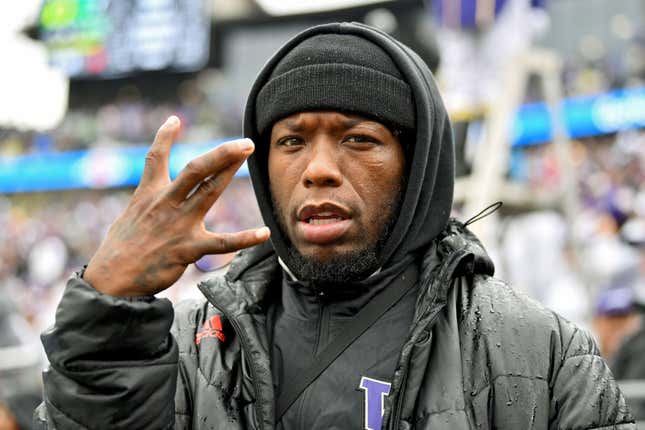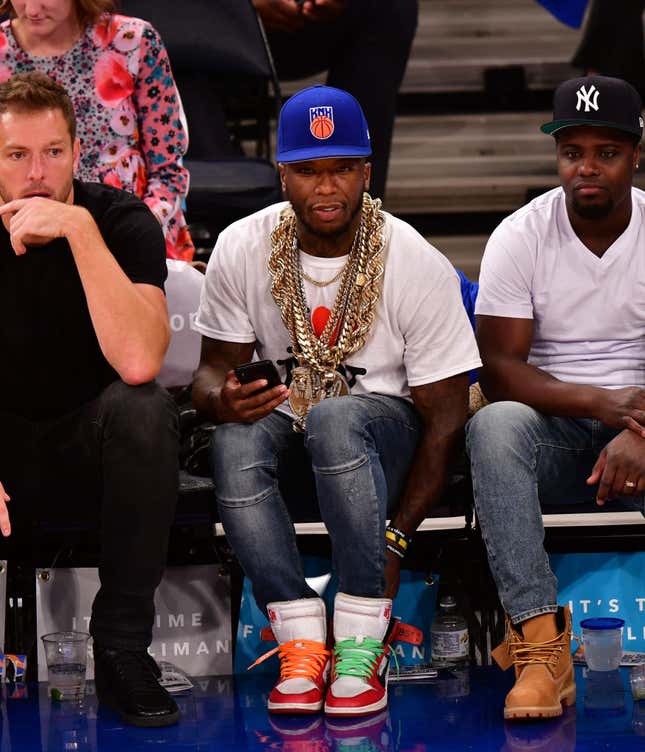
Black men are more likely to have kidney failure than any other demographic group in the United States.
We make up only 6.4 percent of the U.S. population but account for 16.6 percent of patients with kidney failure, according to figures from the Journal of American Medicine.
No one knows the bitter truth of those figures better than Nate Robinson, who played 11 seasons in the NBA.
Robinson, 40 years old and only eight years removed from driving past and dunking on opponents on the hardwood, needs a transplant. If he doesn’t get one, he will die, as people on dialysis typically live five to 10 years, though some live for as long as 30 years depending on a variety of factors.
The diminutive dynamo, who is only 5-9 but had such crazy hops he won the NBA slam dunk contest an astonishing three times, has been sounding the alarm on the risks of kidney disease.

He knows the disease doesn’t care if you’re a professional athlete. It doesn’t care if you drive a bus or if you have the corner office with the big windows.
Kidney disease is out there, waiting for an invitation to come into our lives and destroy them.
Sometimes, we issue that invitation by eating too much, drinking too much and working out too little. That leads to obesity, which leads to diabetes. And, just like that, we’ve opened the door to kidney disease.
Ignoring warning signs is an invitation, too. Robinson said that, despite suffering from high blood pressure, he would refuse to have it checked regularly. Diagnosed with high blood pressure just as his NBA career was getting started and warned that he could have kidney failure in his 30s, Robinson said he tried to push the problem out of his mind.
“I felt like I was Superman,” he told Men’s Health in a recent interview. “I never thought I would get sick.”
Sometimes, kidney disease sneaks into our lives without invitation - slipping in through conditions like focal segmental glomerulosclerosis, which has no known cause.
FGS forced NBA stars Sean Elliott and then Alonzo Mourning to get kidney transplants. Sixteen years ago, it’s what forced my 14-year son to get one, too. Thankfully, he got the transplant he needed and is healthy and happy.
So is my oldest brother. He had diabetes and high blood pressure and needed both a heart and kidney transplant. He got both and, thank goodness, is healthy and happy, too.
I am so very glad for both men. Their experiences and the alarm bell people like Robinson are ringing should be echoing loudly in my ears and in the ears of other Black men like me.
And yet I know I’m not doing all I can to keep that door to kidney disease closed. I’m not alone in this. How else does kidney disease keep getting to us? How else does it keep tethering us to dialysis and killing us?
Let’s hear the alarm Robinson is sounding. Let’s hear the alarms others in our own lives are sounding. Let’s do something about it.
Go for that walk or run. Eat and drink better - and less. Visit your doctor and heed his or her advice. Take the damn high blood pressure medicine.

